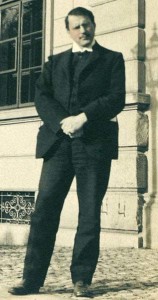
| Born: July 26, 1875 in Kesswil, Thurgau, Switzerland |
| Died: June 6, 1961 (at age 85) in Küsnacht, Zurich, Switzerland |
| Nationality: Swiss |
| Fields: Psychology |
| Famous For: Analytical psychology |
Carl Gustav Jung was very influential in the field of psychology. He was a pioneer in the world of analytical psychology, which revolved around the examination of what exists deep within the subconscious in order to determine what might be motivating above the surface psychological problems.
Jung’s Early Years
Carl Jung was born in the Thurgau region of Switzerland on July 26, 1875. His mother, Emilie Jung, suffered from both depression and psychological delusions. The strained relationship with his mother led to Jung having less than positive views of the role of women in society. It would also be accurate to infer his exposure to his mother’s condition likely established a desire to learn more about the human mind.
Jung would slowly develop his concepts of the archetype when he deemed himself a person with two personalities. The first personality was the one of a traditional Swiss schoolboy and the other was of an aristocratic historical figure. Jung kept such musings mainly to himself.
Jung’s Educational Years
Jung attended the University of Basel in 1895. He was not originally interested in the field of psychology, but he would become hugely interested in the subject upon reading a textbook on the topic by pure chance. Jung eventually befriended the great Sigmund Freud during while publishing academic works, although the two had a famous parting of the ways. Jung, in 1908, had become the editor of the Yearbook for Psychoanalytical and Psychopathological Research.
Jung was drafted into World War I and this would have a profound impact on his life. He worked with British soldiers who were residing in internment camps in the neutral Swiss territory.
Jung’s Work and Contributions
More than the personal details of his life, Jung is known for the uniqueness of his work. He was a trailblazer in the world of psychology and he helped establish many unique and brilliant insights into the human mind.
The collective unconscious was one such area of analysis he would pioneer. The collective unconscious was his theory in which all personal experiences are stored and the conscious actions of a person are often motivated by what exists beneath the surface.
The collective unconscious is one of the three archetypes: the conscious mind, the ego, and the personal unconscious. Jung believed that many of the traits of the archetypes were derived through hereditary. Obviously, personal experiences also contributed to their development as well.
Jung was also an innovator in the realms of dream interpretation and art therapy. He believed that gateways to the subconscious are believed to be found in dreams. Art creation has a means of reaching the subconscious as well.
Death
Carl Jung passed away on June 6, 1961, leaving a legacy that forever shaped the fields of psychiatry and psychology.